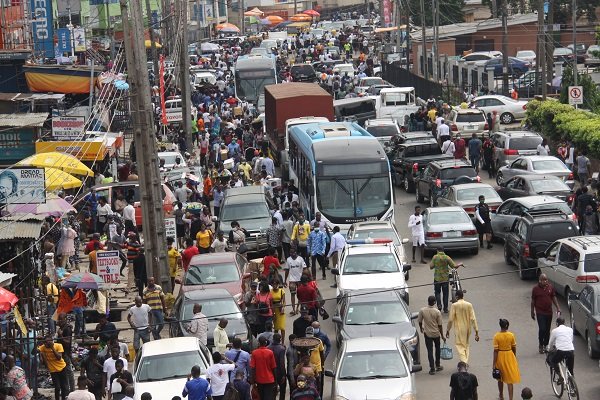CoronaVirus Updates
COVID-19: Lagos, Kano risk up to 900,000 cases, each – Research
Two Nigerian scientists have predicted that cases of the COVID-19 pandemic will rise exponentially, particularly in Lagos and Kano states, if current restrictions were to be removed entirely.

BY KAZIE UKO
Two Nigerian scientists have predicted that cases of the COVID-19 pandemic will rise exponentially, particularly in Lagos and Kano states, if current restrictions were to be removed entirely.
Yusuf Yau Gambo, Applied Mathematician and Data Analyst and Yunus A. Abdulhameed, PhD, Biomedical Physicist, both of Yusuf Maitama Sule University, Kano, in their study said lifting restrictions entirely would bring 868,700 and 919,900 total cases in Lagos and Kano, respectively.
The study, reviewed by another set of scientists, Professor (Emeritus) Peter McClintock, expert in Biomedical Physics, Nonlinear Dynamics and Low Temperature Physics, Lancaster University, UK and Professor Basant Kumar Jha, expert in Mathematical Modelling, Ahmadu Bello University, Zaria, Nigeria, said available evidence shows that the virus cannot be stopped at the moment.
According to the researchers, the only way out for Nigeria is for citizens to change in their lifestyle – the way they used to live, work and socialise until there is a cure for the disease.
Titled, “Transmission Scenarios of COVID-19 in Lagos and Kano States – A Predictive Mathematical Model”, published May 3, 2020, the authors said their report was intended for the general public.
They acknowledged that the lockdown in both Lagos and Kano states has slowed down the progression of the disease, although the partial lifting of the lockdown from time to time in the states could also result in more rise in number of new cases.
“As leaders across the country begin to think about how to re-open the economy, our model Predictive Mathematical Modelling based on ordinary differential equations projects that coronavirus cases in Lagos and Kano would skyrocket if the states suddenly return to normalcy.
“Our team from Yusuf Maitama Sule University, Kano, in collaboration with our counterparts abroad, using NCDC data, projected about 2,038 and 1,444 total cases of the virus in Lagos and Kano, with a peak coming in mid-June and early June respectively. But those figures rely on the states keeping the current restrictions in place.
“With just a 50 percent increase in mobility – people leaving their homes, shopping, going to work and socializing – the model projects that number would leap to 102,600 and 645,500 in Lagos and Kano states, respectively. Meaning, if measures are relaxed by 50 percent in these states, our model projects that the number would skyrocket to these figures.
“Lifting restrictions entirely would bring 868,700 and 919,900 total cases in Lagos and Kano respectively.
“With the evidence that we have, (the virus) cannot be stopped at the moment. We’ve to alter our traditional, cultural and even religious and social norms, the way we operate, the way we work, until there is a vaccine or cure,” the report said.
Based on their findings, the scientists concluded that without strict adherence to social distancing, coronavirus cases in Lagos and Kano would rise steeply “as our model projects huge number of cases in the two states without continued enforcement of social distancing.”
They consequently made the following recommendations:
- Only partial mobility should be allowable.
- Any person over the age of 10 and is in a public space within Lagos and Kano States should now be required to wear a face mask.
- Employers should be required to provide face coverings for employees and government should provide the face masks for citizens that cannot afford.
- Restaurants and bars should be ordered to close dining areas but may maintain take-out, drive-thru and curbside pickup options.
- Higher institutions should be conducting lectures online if possible, else no lecture room should be occupied by more than 40 people.
- Faculties, departments and other places in higher institutions should be required to place large hand sanitizer dispensers at every entrance and exits.
- Worship centers should remain closed until after each state had reach peak of the wave, then the places of worship could be reopened. However, even after attaining the peak, there is also a potential likelihood of another resurgence (second phase) of the virus. But as data continues to emerge, we shall properly be able to provide more predictions.
“Our hope is that, these predictions will provide the authorities concerned with an insight on the potential dynamics behind the transmission of COVID-19 in the two most populated states in Nigeria,” the report stated.
